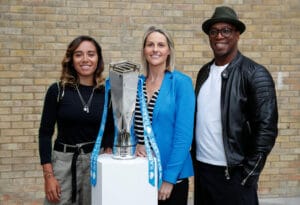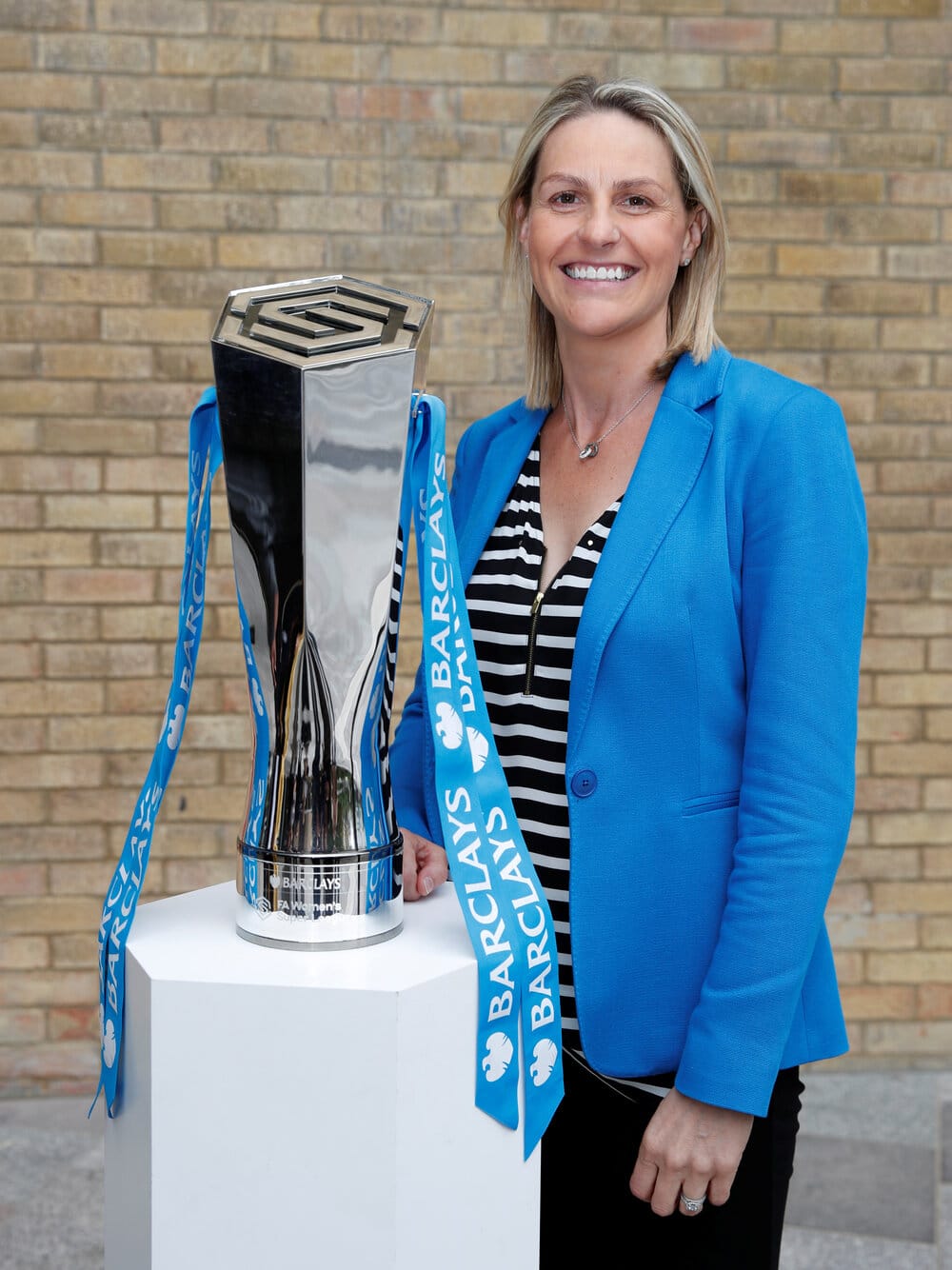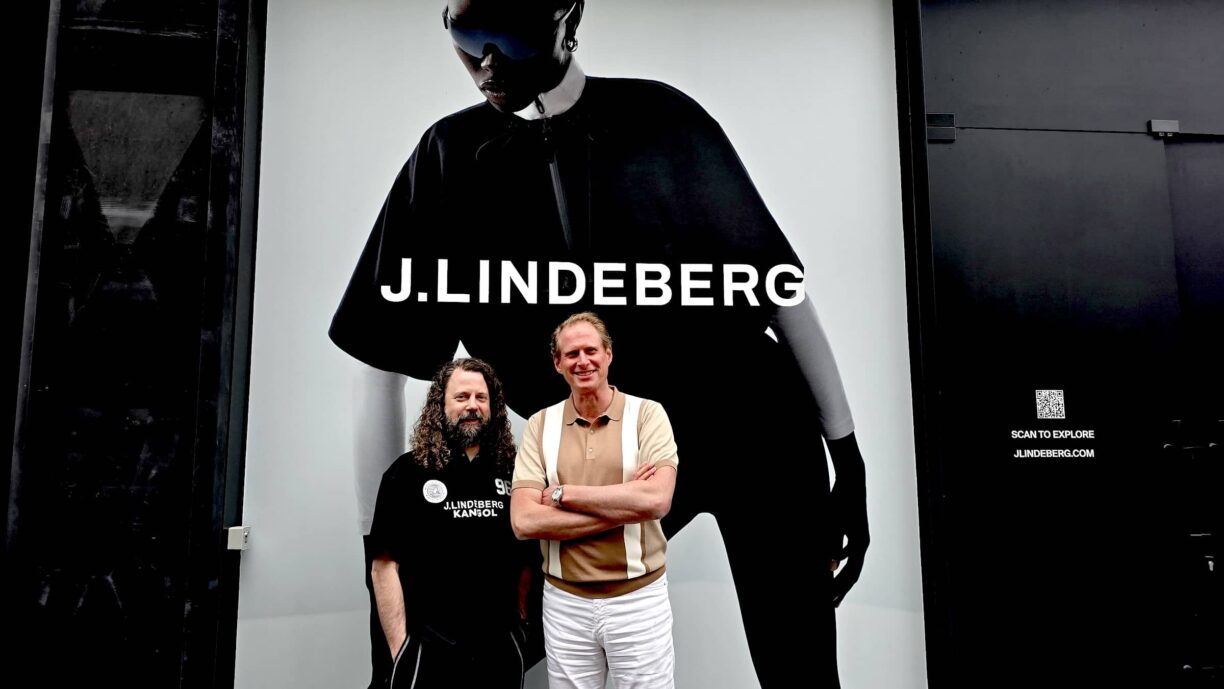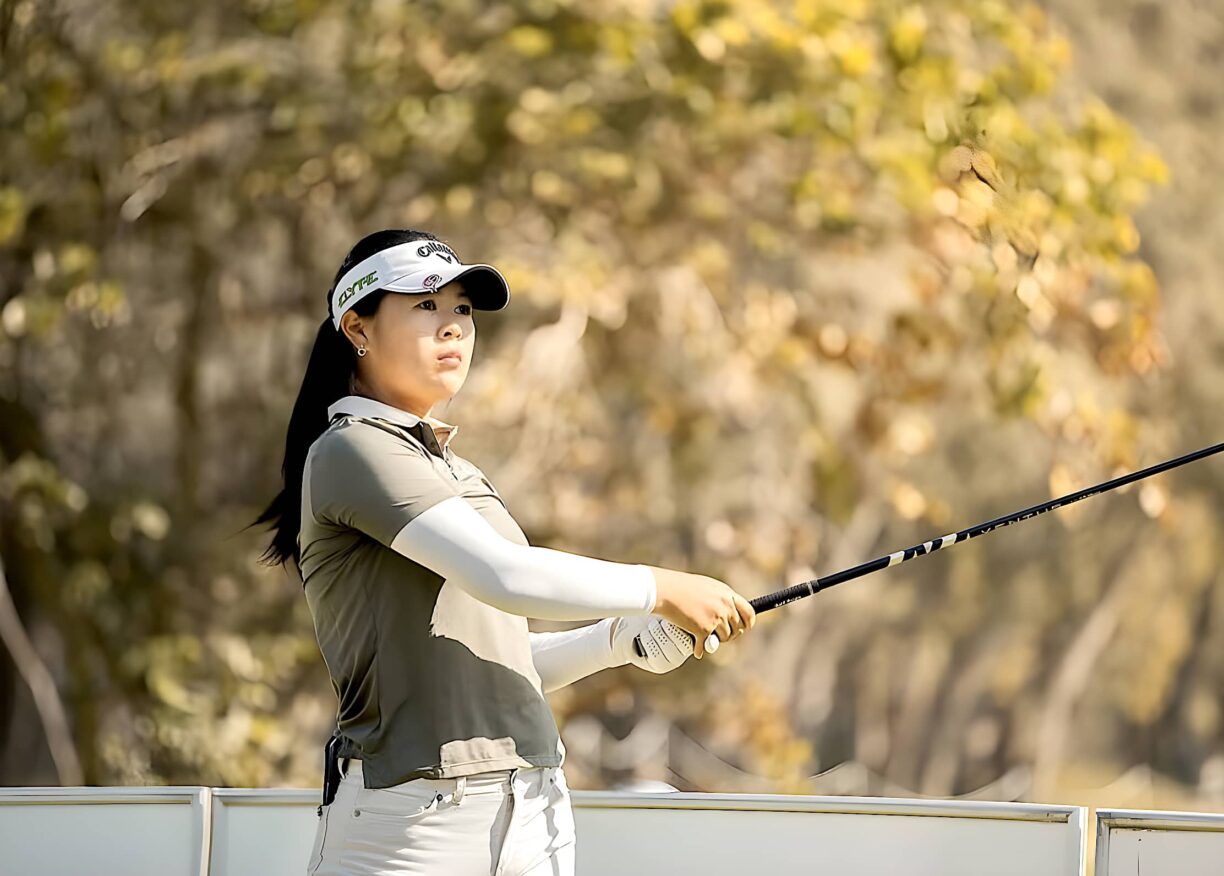It’s been an incredible year for women’s sport, and now more than ever is the time to shout all about the women knocking down barriers for others.
With the Lionesses’ incredible performance at the 2019 World Cup and record match attendances at the 2019/20 season of the Barclays FA Women’s Super League, women’s football is getting more engagement than ever before which is why series three of The Games Changers is dedicated to the women in football that paved the way.
With Barclays supporting the third series of the podcast, The Game Changers is hosted by Sue Anstiss MBE, a founding trustee of the Women’s Sport Trust charity and the founder and CEO of Promote PR, one of Britain’s leading sports communications agencies.

EPISODE 1: KELLY SMITH
Kelly Smith is widely regarded as one of world’s greatest-ever female players. She scored a record 46 goals for England in 117 internationals before retiring in 2015 after a 20-year career.
Playing for Arsenal, Kelly won the League title six times and the FA Cup five times. She played in four European Championships and two World Cups and represented Team GB at the London 2012 Olympics. Kelly also had a career in the US, and in 2008 was awarded an MBE for her services to women’s football.
In episode one of The Game Changers, Kelly talks openly about how tough it was playing football as youngster and being kicked off two teams for being a girl and how England is the best place for any young woman wanting to play professional football today.
She also shares why she feels it’s so important to share her past struggles with alcohol in order to encourage others to talk more openly about mental health.
KELLY SMITH LINES:
On being told she couldn’t play anymore on the boys’ teams
“… I was devastated because I am only 8 or 9 at the time and I just wanted to do something that I was passionate about, and good at, and being told that I couldn’t do it was soul destroying.”
On high levels of addiction in professional football:
“You play at such a high level for so long and you get the buzz and the feeling, and then when that’s taken away or you can’t do that anymore you’re kind of looking for something else, and when you get that through gambling or that buzz, if you have that addictive personality, like I do, you get yourself in problems.”
On why she talks openly about her issues with alcohol:
“I could have just pretended that everything was okay, and I started to do that at the early part of my career, when I’d do interviews, they’d say ‘how did you deal with your injury?’ and I’d just brush it under the carpet, not really feeling comfortable talking about my addiction and how I really did deal with my injuries.
And then when I got a little bit older, I thought I need to be honest. It’s hurting me to lie and I want to help other people. There were times that I wanted to quit, when I was really low. But I didn’t and that’s what I am most proud of, because there were some really dark times.”
On opportunities for women in football today:
“There is a career in football now for women, not just if they want to play football, but you could be a referee, you could be a coach, you could be a journalist, anything within the game now – you could be a pundit, but a few years ago the opportunities weren’t really there.”





